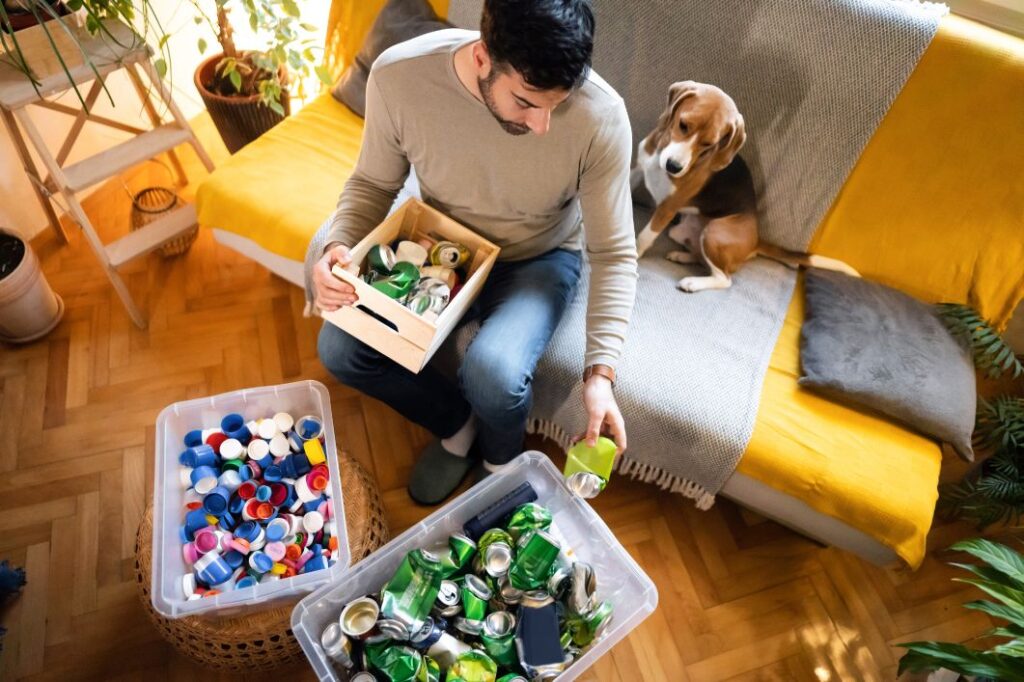
Eco-Friendly Pet Care: Sustainable Practices for a Greener Future

Being a responsible pet owner definitely makes the world a better place, but it’s not always earth-friendly. Between the agricultural practices, livestock management, packaging, and transportation of pet foods, the pet care industry has an immutable impact on rising greenhouse gasses. Despite this ever-growing carbon footprint, we can make a variety of changes to the ways we provide and care for our best friends. Eco-friendly pet care is not only easy and straightforward, it has a tremendous effect on the future.
Supply and Demand
The global pet care market exceeds $200 billion annually and will continue to grow each year. Meat-based pet foods require enormous energy, land, and water usage, and are directly linked to pollution. The process of creating kibble for America’s 200 million pets has the same impact on the environment as 13 million cars. In fact, because a quarter of all U.S. meat production goes toward pet foods, over 60 million tons of greenhouse gasses are attributed to pet food annually.
Turning Toward Sustainability
Pets not only need a balanced, nutritious diet, they deserve a high-quality food product every day. To achieve eco-friendly pet care, it is crucial to find a pet food that not only meets a pet’s age-appropriate needs, but also promotes sustainable ingredients and packaging. Many green pet products also give back a portion of their profits to eco-friendly pet care initiatives.
Organically Grown and Raised
Conveniently, there are many pet food brands that only source organic meat and veggies for their foods. Beef, dairy, and pork produce more carbon than, say, organic poultry, and pets seem to like it, too. Try to find foods that list healthy, organic fruits and vegetables to reduce your pet’s carbon footprint. Remember, the fewer the ingredients, the better.
Before you change your pet’s existing diet to a more earth-friendly one, it’s a good idea to consult your vet. Pets dislike abrupt change, and some ingredients can lead to or worsen certain health conditions. If you’re hoping to reduce or eliminate meat to achieve eco-friendly pet care, please be aware that pets, especially cats, require and benefit from a meat-source protein.
Green Pet Practices
We recommend any of the following ideas to implement and manage green pet practices:
- Purchase compostable, non-plastic pet waste bags
- Install an in-ground pet waste composter
- Opt out of clay-based cat litter products; purchase biodegradable litter instead
- Buy recyclable pet products
- Make your own pet toys
We Love Pets and Our Planet
If your pet is spayed or neutered, you’ve already made a difference in the world. Bonus points if you take them outside everyday for long walks or play time, and subscribe to the “adopt, don’t shop” mindset. Whatever you can do to contribute to the greater, greener good, your pet will thank you.
If you have any questions about sustainable pet care, please call Arlington Animal Hospital at (703) 920-530. Together, we can create a brighter future for our pets.
Contact Us!
2301 Columbia Pike #G-1, Arlington, VA 22204
Phone: (703) 920-5300
Fax: (703) 685-8860
Email: info@myarlingtonvet.com
Office Hours
-
Monday
8 a.m. – 8 p.m.
-
Tuesday
8 a.m. – 8 p.m.
-
Wednesday
8 a.m. – 6 p.m.
-
Thursday
8 a.m. – 6 p.m.
-
Friday
8 a.m. – 6 p.m.
-
Saturday
8 a.m. – 2 p.m.
-
Sunday
CLOSED
- Doctors’ hours are by appointment only.



